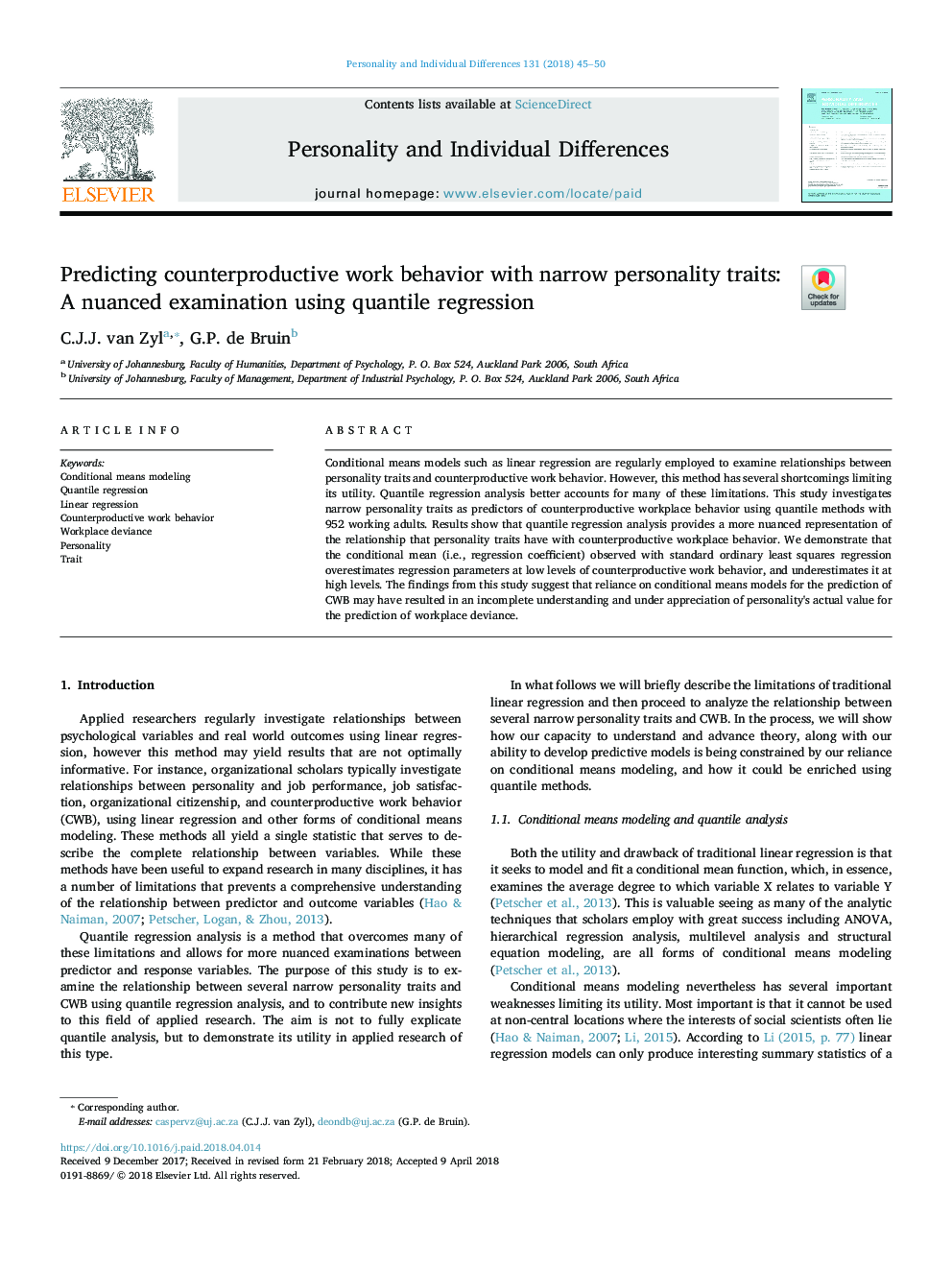| Article ID | Journal | Published Year | Pages | File Type |
|---|---|---|---|---|
| 7248563 | Personality and Individual Differences | 2018 | 6 Pages |
Abstract
Conditional means models such as linear regression are regularly employed to examine relationships between personality traits and counterproductive work behavior. However, this method has several shortcomings limiting its utility. Quantile regression analysis better accounts for many of these limitations. This study investigates narrow personality traits as predictors of counterproductive workplace behavior using quantile methods with 952 working adults. Results show that quantile regression analysis provides a more nuanced representation of the relationship that personality traits have with counterproductive workplace behavior. We demonstrate that the conditional mean (i.e., regression coefficient) observed with standard ordinary least squares regression overestimates regression parameters at low levels of counterproductive work behavior, and underestimates it at high levels. The findings from this study suggest that reliance on conditional means models for the prediction of CWB may have resulted in an incomplete understanding and under appreciation of personality's actual value for the prediction of workplace deviance.
Keywords
Related Topics
Life Sciences
Neuroscience
Behavioral Neuroscience
Authors
C.J.J. van Zyl, G.P. de Bruin,
